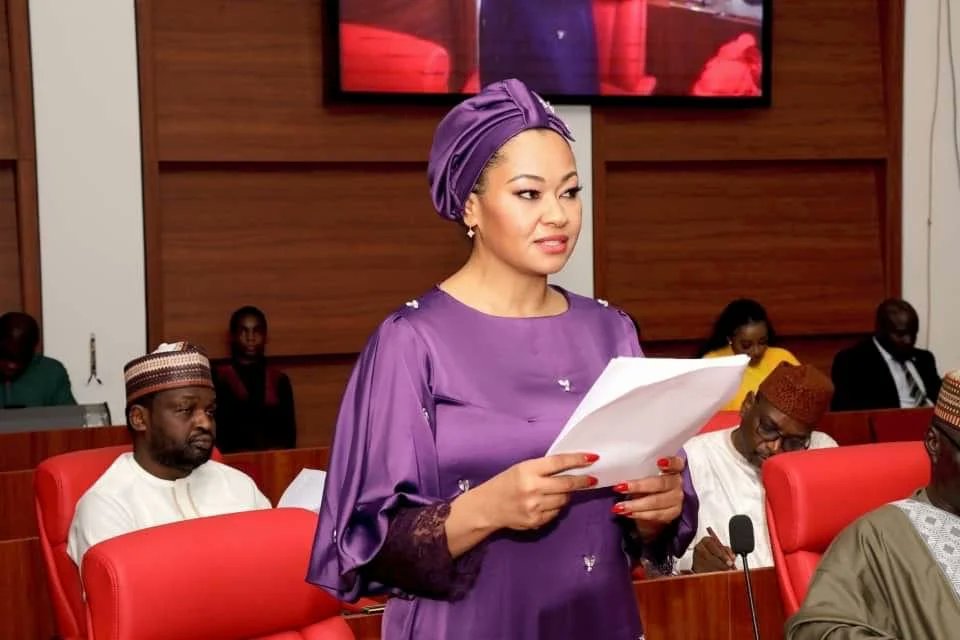A surge of defections from opposition parties has significantly increased the number of All Progressives Congress (APC) lawmakers in Nigeria’s National Assembly. The APC now controls 68 seats in the Senate and about 207 in the House of Representatives, less than two years into the 10th Assembly.
Senator Neda Imasuen of the Labour Party, representing Edo South, plans to formally join the APC on June 12, which would raise the party’s Senate strength to 69. If Senator Ahmed Wadada Aliyu of Nasarawa West—who recently resigned from the Social Democratic Party (SDP)—confirms his return to the APC, that number could reach 70.
Three former Peoples Democratic Party (PDP) senators from Kebbi—Adamu Aliero, Yahaya Abdullahi, and Garba Maidoki—recently joined the APC after meeting with President Bola Tinubu, cutting PDP’s Senate representation from 36 to 30.
At the start of the 10th Assembly in June 2023, the APC held 59 Senate seats, while PDP had 36, and other parties shared the remaining. Due to widespread defections, the APC’s Senate tally has climbed to 68, with PDP down to 30, and the rest scattered among smaller parties.
Observers predict further shifts when lawmakers reconvene, especially after Akwa Ibom Governor Umo Eno defected from the PDP. Two senators and seven House members from the state may follow his lead.
Since June 2023, several senators have crossed to the APC. Senator Ibrahim Danbaba (Sokoto South) joined in March 2024, while Senator Ifeanyi Ubah left the YPP in October 2023 before his death. Senators Ned Nwoko (Delta North), Ezenwa Onyewuchi (Imo East), and Kawu Sumaila (Kano South) also defected between 2024 and 2025, citing internal party crises.
In the House of Representatives, the APC increased its numbers from 175 to around 207 due to defections. Initially, the opposition held a majority with 182 combined seats. That figure has now dropped to about 150.
The wave began on July 23, 2024, when Hon. Idris Salman (ADC, Kogi) joined the APC. Several PDP lawmakers followed, including Hon. Chris Nkwonta (Abia) and Hon. Sulaiman Abubakar (Zamfara) in October 2024. The Labour Party saw mass exits in December 2024 when four of its House members joined the APC, citing dysfunction within the party. Hon. Alfred Ajang followed suit a week later.
Defections continued in 2025. PDP’s Hon. Amos Magaji (Kaduna), Hon. Garba Koko (Kebbi), Hon. Jallo Hussaini Mohammed (Kaduna), and Hon. Adamu Tanko (Niger) all joined the APC in early 2025. On March 27, Hon. Clara Nnabuife (YPP, Anambra) switched to APGA, citing marginalization.
A major realignment occurred in May when six PDP lawmakers from Delta followed Governor Sheriff Oborevwori to the APC. That same day, two Labour Party members from Enugu defected to the PDP.
More defections followed on May 15 and May 22, with legislators from the NNPP, PDP, and LP moving to the APC, further weakening the opposition.
Analysts Criticize Defections, Cite Weak Ideological Foundations
Political analysts have condemned the trend, saying it reveals a lack of ideological commitment in Nigerian politics. Dr. Kamar Hamza of IBB University described the defections as opportunistic, driven by self-interest rather than public service. He blamed weak party ideologies for enabling corruption and underdevelopment.
Dr. Ibrahim Yahaya of Al-Hikmah University added that politics has become transactional. He warned that poverty and voter manipulation will continue to undermine genuine reform unless citizens demand ethical leadership.
Legal experts echoed these concerns. Barr. Manzuma Issa of the Nigerian Bar Association noted that existing laws prohibit such defections unless a party crisis exists. However, poor enforcement has made the laws ineffective. He criticized the lack of accountability, comparing it unfavorably to other democracies where court rulings are binding.
As the APC consolidates its hold on the National Assembly, critics warn that the unchecked trend threatens democratic principles and accountability.




